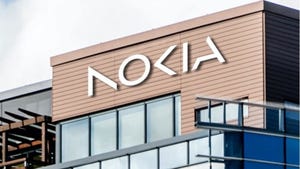Swedish operator group Telia has completed the sale of a minority stake in its Swedish tower business to investors Brookfield and Alecta.
June 1, 2022

Swedish operator group Telia has completed the sale of a minority stake in its Swedish tower business to investors Brookfield and Alecta.
The deal was announced in January 2022, and now that all regulatory approvals have apparently been received, on closing Telia will get SEK 5.5 billion for the 49% stake in its towers in Sweden.
Telia sold 49% of its Norwegian and Finnish tower business in December 2021 to Brookfield and Alecta, and all the tower assets now fall under Telia Towers AB which is 51% owned by Telia with the remaining 49% owned by Brookfield and Alecta.
“We are delivering on our strategy to both develop and crystalize the value of our digital infrastructure, and I am delighted that we have Brookfield and Alecta as our Tower partners in Norway, Finland and now in Sweden,” said Allison Kirkby, Telia Company President and CEO. “Having created the Nordic region’s leading Tower company with an EV of EUR 2.6 billion, we aim to be an even stronger foundation to the continued digitalization of the Nordics.”
We’re told the transaction is in line with Telia’s ‘digital infrastructure strategy’ – a strategy which clearly involves offloading vast amounts of physical telecoms infrastructure for lump sums of cash. Telia is hardly the only operator that has come to the conclusion this is the best way forward – and there is plenty of investors who seem happy to take it off their hands.
As we mentioned yesterday following reports that Brookfield and Cellnex are eying up Deutsche Telekom’s towers for €20 billion, the last few months alone has seen a large amount of activity in terms of tower ownership shifting from the operators to investor consortiums or tower specific businesses. The reasons for this are on one level plainly obvious – the bags of money that are available in exchange for the assets, in a time when many telcos are complaining about margins.
The long term consequences of doing so however remain to be seen. It could be that it’s the best move for operators to make, but you can also imagine a scenario where not actually owning the thing that entirely underpins your business could cause an issue or two down the line. Either way, its clearly a trend and points to an industry transforming to some degree.
Could all physical infrastructure be outsourced in the future? Would such a scenario ultimately damage the aspirations of operators to be more than simply ‘dumb pipes’? Does it open up the possibility of better funded, non-telco firms moving into the market more easily? There are no definitive answers to these questions, but they are worth thinking about.
To read how the Japanese cloud-centric telco Rakuten thinks the telecoms industry is changing and what the future is for operators, check out our interview here.
Get the latest news straight to your inbox. Register for the Telecoms.com newsletter here.
About the Author(s)
You May Also Like








.png?width=300&auto=webp&quality=80&disable=upscale)


_1.jpg?width=300&auto=webp&quality=80&disable=upscale)


.png?width=800&auto=webp&quality=80&disable=upscale)